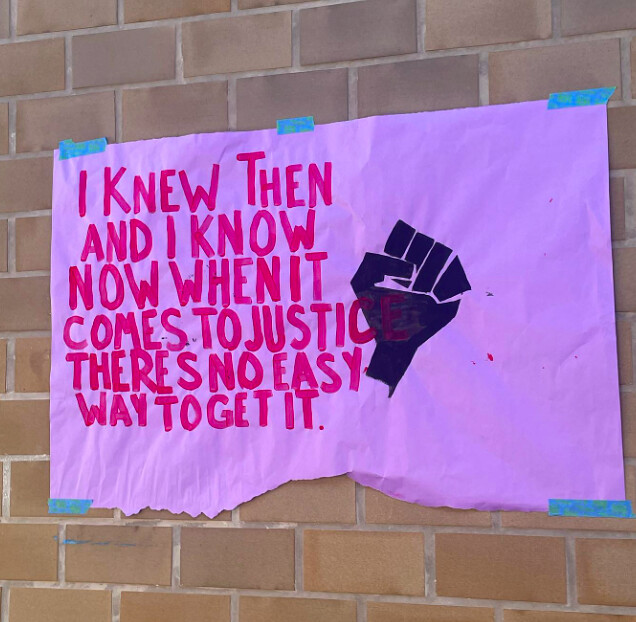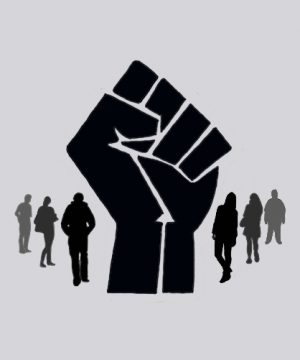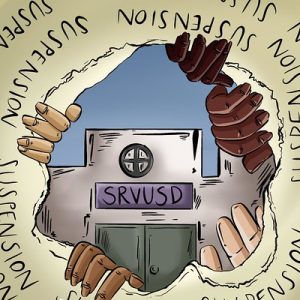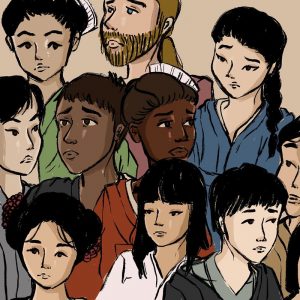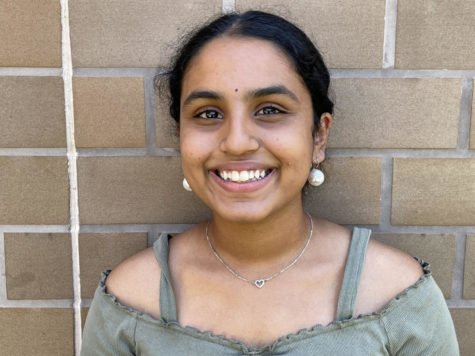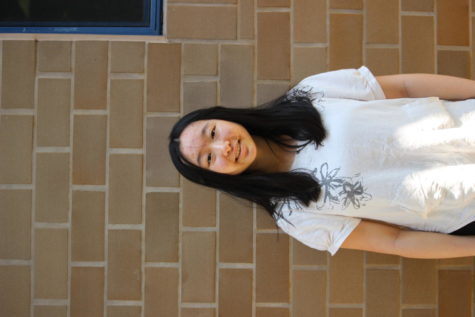DVHS Black Student Union calls for unity of black community during Black History Month
The Black Student Union has been creating and putting up posters around the school to draw students’ attention to the struggles of the black community. (Credit: @bsu.dv22 on Instagram)
March 6, 2022
With only 2.3% of Dougherty Valley High School’s population being African American, there is often a lack of emphasis placed on the representation of black students on campus.
“At our school, [black students] are not represented,” Camaya Knox, co-president of the Black Student Union at Dougherty, corroborates. “We have to stand up for ourselves because it’s really hard for other people to stand up for us.”
Black students have expressed their discontent with the lack of effort from the school to embrace black history and culture.
“I haven’t seen a post about black history month on the Instagram page for Dougherty Valley,” Knox points out. “[They made a post about] Asian American Pacific Islander month, [so] I feel like they look at the other groups more than black students. Us not being represented in the smallest way, such as an Instagram post, makes us feel like we don’t belong.”
However, a lack of willingness from the black students themselves to show that they want to be represented also contributes to this problem.
“The numbers show that we’re not represented. But, it’s also hard for black students to [have] representation because they don’t want to. They want to stick to the status quo. They want to just fit in,” Leslie Jones, a black student at Dougherty, expresses. “So, yes, there is a lack of representation. But it’s also up to the students to show that they want to be represented.”
The Black Student Union (BSU) was formed to combat this issue by creating a safe community for black students within the school to share their experiences and connect with one another.
Jones comments on how being part of BSU has helped him. “I learned how to be comfortable in my own skin. I learned about other people and their struggles, and it’s nice to connect with people who are also living in this community and [understand] how their experiences are similar to mine,” he said.
The origins of the club reflect the lack of representation at DVHS.
“I remember [in] my freshman year, I was in BSU, but it wasn’t purely a Black Student Union. It was also the Latinx club,” Knox, who is currently a senior, recalls, “There [weren’t] enough black students, so they merged [it with the] club for Latinx.”
The unsure future of the club can also be attributed to the same lack of representation.
“[When] the officers graduated, the club wasn’t there [for] the years to come. So, the club has really been very inconsistent,” Knox explains.
Although the club is currently doing well, members have expressed concerns about the potential of facing issues with the lack of leadership again in the future.
“I feel like there’s never [going to] be [enough] leaders for black people at this school to continue BSU, even though I would like to see it happen,” Jones corroborates.
During Black History Month in February, BSU used various techniques, including social media campaigns and putting up posters around the school, to draw attention to the struggles that African Americans have faced throughout history and make the school a better place for black students.
Since 1976, February has been known as Black History Month, and its purpose is to celebrate the achievements of African Americans and recognize their crucial role in US history.
According to NPR, Carter G. Woodson, often referred to as the “father of Black history,” started pushing for a time designated to promoting Black history and culture in 1926. It started out with the second week of February as Negro History Week, and as the idea grew in popularity, Black History Month came into being.
The month of February was selected since the second week of the month includes the birthdays of both Abraham Lincoln and Frederick Douglass, who were both extremely significant in black history. Lincoln was the one who passed the Emancipation Proclamation to abolish slavery, and Douglass was a former slave and prevalent leader in the abolitionist movement.
To maintain Woodson’s practice of assigning a theme to Negro History Week, a theme is selected for Black History Month each year.
This year’s theme is Black Health and Wellness, which is about paying tribute to black medical scholars and health care providers. This is especially fitting considering that we are now in our third year of the COVID-19 pandemic, which has hit minority communities the worst, according to the National Library of Medicine.
According to US News, black healthcare professionals have unique struggles that make their work during the pandemic even more difficult than their white counterparts. Since black physicians are more likely to practice in underserved communities where there is a lack of adequate equipment and resources, they face a disproportionate risk of contracting the virus while treating patients. Blacks accounted for 21% of the 9,282 healthcare workers who have contracted COVID-19 even though they only make up 12% of all healthcare workers in the United States.
Such disparities are important to address to prevent the already dwindling black physicians (5% of all people in the profession and 7% of all medical school students) from dropping further.
The effects of COVID-19 seen by black students at Dougherty extend to issues like education as well. Many events that the BSU had planned have been postponed due to the virus.
Despite strict regulations on proof of vaccination and masking, “many people just don’t feel comfortable being around a lot of people,” Knox says.
However, one event that is still being held through the pandemic is the Oakland Black College Expo.
“The black college Expo is for black students to [see] different colleges [and] different things to do [after] high school,” Knox describes, “They do on-site acceptance. Historically black colleges [and universities] (HBCUs) are the main focus.”
Such events aim to help black students learn about opportunities that are available to them and ways that they can make a better future for themselves.
“Representatives from those colleges come together and just talk to you about going to a historically black college and what you can gain from [that],” Jones furthers.
One of the main platforms that BSU has been using to spread awareness is social media, particularly their Instagram account (@bsu.dv22).
During the month of February, they have been keeping their audience engaged with almost daily posts spotlighting various African Americans who played a key role in the Civil Rights Movement along with posts celebrating the accomplishments of black artists, athletes, scientists, and more.
Knox explains BSU’s social media strategy. “We like to highlight important people that you might not see on [a] daily basis. [We always see] Malcolm X, Martin Luther King Jr., [and] Rosa Parks. Although [they] are great figures in history, we need more exposure to other black inventors, artists, creators, and people in the Civil Rights [Movement],” she said.
The impactful caption “Black History is American History” accompanies a picture of Eugene James Bullard, the first African American military pilot.
Many posts also focus on spotlighting black women, whose role is often minimized in popular culture. They include the hashtag #blackgirlmagic, a movement popularized in 2013 to celebrate black women and their achievements.
“We also are highlighting black students in the club because they’re also important,” Knox says, “It’s not [just] about the people who’ve already done something. It’s about the people that are willing to make a change. Everyone in the BSU club, [whether] they’re black or a different race – they’re all going to create change because they are willing to look at other people’s perspectives and really make a difference.”
BSU has also been working to increase their presence on campus beyond their biweekly meetings, which occur on Thursdays during lunch in room 1204.
“We created posters at the end of January to kick off Black History Month and get everyone outside of the club to see our point of view,” Knox furthers.
Through all these methods, BSU hopes to create a safe space for black students at Dougherty, where many of them feel overlooked and underrepresented.
“The Black Student Union is a place for black people to feel welcome and feel at home,” Knox concludes.

